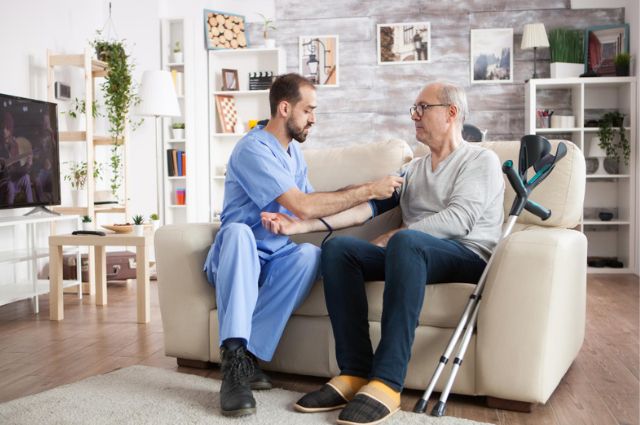
When facing a medical condition, injury, or surgery, the journey to recovery can be both challenging and transformative. The process of healing is not only physical but also emotional and mental. Home medical recovery offers a unique opportunity to take charge of your health and well-being in the comfort of your own space. In this blog post, we’ll explore the importance of home medical recovery and provide insights on how to navigate this journey effectively.
The Healing Power of Home
Home is where we find comfort, safety, and a sense of familiarity. It’s a place where we can relax and be ourselves. These elements are essential for healing and recovery. When you return home after a medical procedure, you’re surrounded by the people, pets, and things you love, which can significantly contribute to your emotional well-being.
Moreover, being in a familiar environment can help reduce stress and anxiety, which often accompany medical conditions or procedures. This emotional support can play a pivotal role in your recovery process.
Setting Up Your Recovery Space
Creating a conducive environment for your recovery is crucial. Consider the following tips to make your home an optimal place for healing:
1. Comfortable Sleeping Arrangements: Ensure you have a comfortable and supportive mattress, as quality sleep is essential for recovery. Pillows, soft blankets, and cozy bedding can also make a big difference.
2. Reduce Clutter: A tidy and organized space can reduce stress and improve your overall well-being. Clear pathways and minimize obstacles to prevent accidents.
3. Adequate Lighting: Ensure that your home is well-lit to prevent tripping or straining your eyes. Natural light, in particular, can boost your mood and energy.
4. Safety Precautions: Install safety railings, grab bars, and non-slip mats in areas where you may need extra support, such as the bathroom. These measures can prevent accidents and facilitate movement.
5. Medication Organization: If you’re taking medications, set up a system to keep track of dosages and schedules. Pill organizers, medication charts, and alarms can help ensure you stay on top of your treatment plan.
6. Accessibility: If your recovery involves limited mobility, ensure your home is accessible. You may need to rearrange furniture or invest in assistive devices, like wheelchairs or walkers.
Embracing a Healing Lifestyle
Recovery is not just about physical healing but also about adopting a holistic approach to well-being. Here are some important factors to consider:
1. Nutrition: Proper nutrition plays a crucial role in recovery. Make sure your diet is balanced, and consult with a healthcare professional if you have specific dietary requirements. Hydration is also essential, so drink plenty of water.
2. Physical Activity: Depending on your medical condition or procedure, your healthcare provider may recommend gentle exercises or stretches. Physical activity can help improve circulation and reduce the risk of complications.
3. Mental Well-being: Your mental and emotional state is closely linked to your physical recovery. Practice relaxation techniques like meditation, mindfulness, or deep breathing to reduce stress and promote a positive mindset.
4. Emotional Support: Don’t hesitate to seek emotional support from friends, family, or a therapist if needed. Open communication and emotional connection are important aspects of healing.
5. Follow Medical Advice: It’s essential to adhere to your healthcare provider’s recommendations regarding medications, treatments, and follow-up appointments. This ensures you receive the most effective care.
Seek Professional Guidance
Your healthcare provider is your primary resource during the recovery process. It’s essential to maintain open and clear communication with them. If you have any concerns, questions, or experience unexpected symptoms, don’t hesitate to reach out to your medical team.
Your healthcare provider can provide guidance on managing pain, infection prevention, and monitoring your progress. They can also offer valuable advice on when it’s safe to resume daily activities and work.
Incorporate Support Systems
Having a properly equipped home is fundamental for the recovery process, especially when navigating multiple floors is part of your daily routine. If you reside in Las Vegas, NV, and mobility is a challenge, installing a home elevator could be a game-changer.
Home elevators offer an effective solution for moving between floors effortlessly, eliminating the strain of stairs and reducing the risk of falls. They can be customized to your aesthetic preferences and space constraints, adding value not only to your recovery process, but also to your home. Reach out to local professionals to explore the options available for home elevators in Las Vegas, NV, and make your home recovery journey safer and more comfortable.
Home medical recovery is a journey that combines physical healing with emotional and mental well-being. It’s a time to take charge of your health and well-being while embracing the comforts of home. Remember, healing is a personal journey, and your home can be the ideal place to embark on it.







